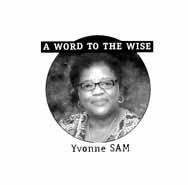
It is so easy to get caught up in the madness and frenzy of the holiday season. It used to be that stores would wait until early December to bring out the Christmas gear, but each year it seems to come earlier and earlier. Soon you will be able to buy a Christmas tree in July, as every year the trend is starting earlier and earlier.
Currently, the day immediately following Halloween, the bombardment begins. Mannequins all bedecked in Xmas clothing inundate storefront windows. Xmas songs take over the airwaves. Lawns get cluttered with inflatable snow globes, plastic reindeer and other such decorations. The stock market rises or falls based on how much holiday stuff consumers buy.
As many of us get swept up in a whirlwind of holiday parties, shopping for the perfect gift and decorating our homes, we do stress ourselves out in the process. Have we forgotten the true meaning of the holidays with the commercialization of society and have all become confused Grinches? Accompanying the shopping frenzy is the yearly lamentation against the commercialization of Christmas.
You’ve got to hand it to Lucy van Pelt; she called it as she saw it. “Look, Charlie, let’s face it,” she barked in A Charlie Brown Christmas, “We all know that Christmas is a big commercial racket. It’s run by a big eastern syndicate, you know.” In Miracle on 34th Street, Kris Kringle, working undercover in a Macy’s department store, tells his friend Alfred that, “I’ve been fighting against [it] for years, the way they commercialize Christmas.”
Alfred replies, “A lot of bad ‘-isms’ floating around this world, but one of the worst is commercialism.
The huge conglomerates are hitting us from all sides.
For example, take a certain corporation that owns a chunk of stock in McDonald’s. Ever wonder why you’ve seen so many toys, movies, etc. made by this corporation in McDonald’s promotions? That is why. And take note of this, the word these days in the corporate world is ‘multi-level cross marketing.’ In other words, let’s wrap this all up between us and make buying suckers out of the parents of kids who will bug their parents until they get what they want.
As we once again confront a season of that commercial racket, we are tempted to think that Christmas had once been a pure holiday, full of wonder and free of capitalistic corruption. No way, here are some facts to set the record straight.
What is Christmas, then? A religious holiday… a cultural event… a shopping season…? You decide. It may seem that the sanctimonious, the puritanical, and the killjoys raise ‘the- commercialization-of-Christmas’ issue about this time every year. Stop it! Christmas has been commercialized since year zero.
The commercialization of Christmas is increasing, but people do forget that the modern Christmas is not at its roots a religious event; its popularity was manufactured both by big business and religious groups. Today, people complain that we are spoiling children, spending on things we don’t need, loading our credit card with debt and getting stressed lining up to buy things—all for a few hours of joy. Do not for one moment think that this is all new. A hundred years ago, the level of commercialism was already thought to be overwhelming and morally wrong.
Here in Quebec, in the mid nineteenth-century, Christmas was just one of more than 200 annual religious celebrations. In the middle of the Industrial Revolution, Canadians increasingly found themselves working in factories. Since the manufacturing cycle could not be disrupted every few days for a celebration, the number of compulsory holidays dropped drastically by the end of the nineteenth century. Traditionally, for Christians at the time, the big celebration was Easter and for French Canadians New Year’s Eve. Christmas stood in the shadow of those two holidays, but through a convergence of forces it became the dominant celebration of the year. “It was hijacked by big business and to a lesser extent the Church. Religious groups, particularly in Quebec, discouraged the celebration of New Year’s Eve because it was a pagan holiday that often led to immoral practices, and sometimes the drunken debauchery went on for two weeks.
Yes, it was the hand of business interests that was the strongest. The dominant ideology pushed people to work hard and amass as much money as they could, never spending a dime on unnecessary things. However, this was not without its accompanying problems, goods were being produced, but there was no market to buy them. A solution had to be found, the solution was to re-appropriate Christmas and connect commercial interests with Christian values: generosity and compassion, thus making it the biggest day of the year.
Christmas was wrapped up as a religious celebration on the outside although in practice revolved around materialism. Even 100 years ago records show Christians prepared a month in advance, not by saying their prayers or singing in church, but by focusing on material things: the gifts, the tree, greeting cards, the yuletide log, and Santa Claus. What was he doing there anyway? Why was it not about Jesus Christ?
In trying to replace New Year’s Eve as the central celebration of French Canadians, priests made a deal with the devil, so to speak, and collaborated with big business to promote Christmas. They did not exactly lose, but the commercial aspects of Christmas have, since the end of the 19th century, always overwhelmed the religious ones. This beautiful event has become lost in revelry succumbing to over-indulgence and compromised by consumerism and base tendencies…
So I am getting down off my soapbox before you begin to think I’ve lost my Christmas spirit; I have not. I am just trying to embrace the true spirit. I do love this time of year, but I believe we have lost the true meaning of Christmas because we have fallen into the corporate gift-buying trap.
Is there anything wrong with buying gifts? No, I don’t believe so, but what is wrong is what we feel when we are buying gifts. Are we buying the gift to impress someone, or are we buying the gift because we think it will bring a smile on someone’s face? Or are we buying a gift because it is the latest, newest gadget to come down the pike and I must get this for someone to impress them that I care. What we care about is not the person, but our own self ego of what we are buying. These may sound like harsh, judgmental words, but I truly feel that is why Christmas has lost its true meaning. We have forgotten Christ.
Maybe it is about time that we put Christ back into our Christmas? By doing something for someone else and doing it many times for those we don’t even know, and not only at Christmastime but throughout the year.
Do we then celebrate throughout the year what Christmas is truly about? It’s a reminder that we are supposed to be caring and loving for others all the time, not just at Christmastime. We also should not buy into this ridiculous ideal of buying as much as possible and contribute to this idea that we should put material possession above all else. That’s just the opposite of what Christmas is supposed to be about.
Aleuta –The struggle continues…














